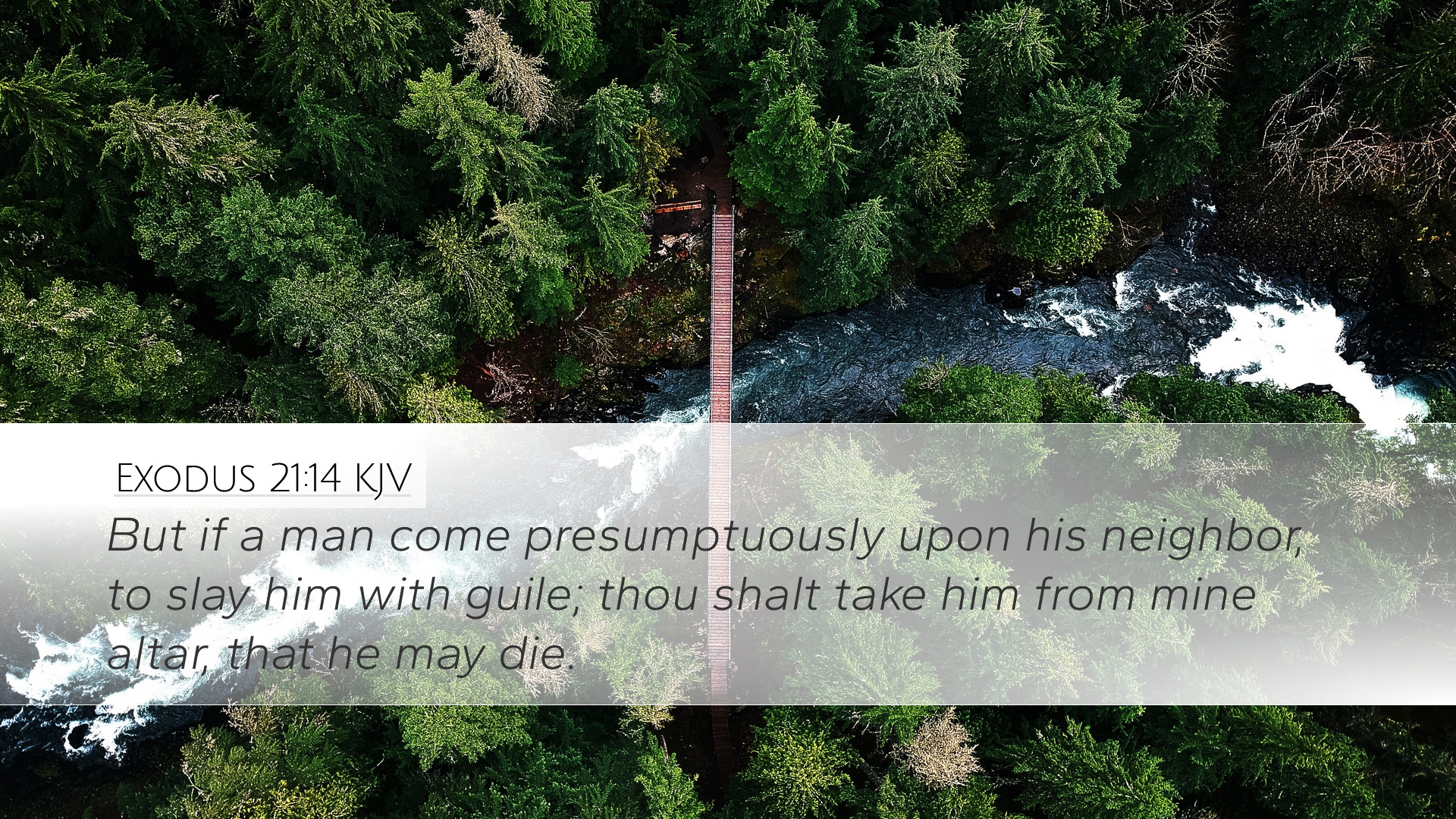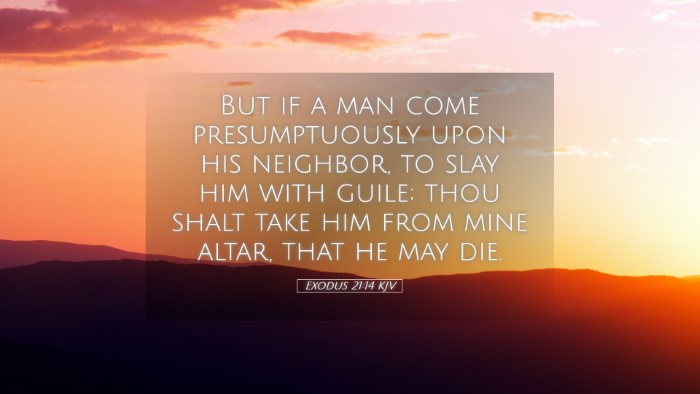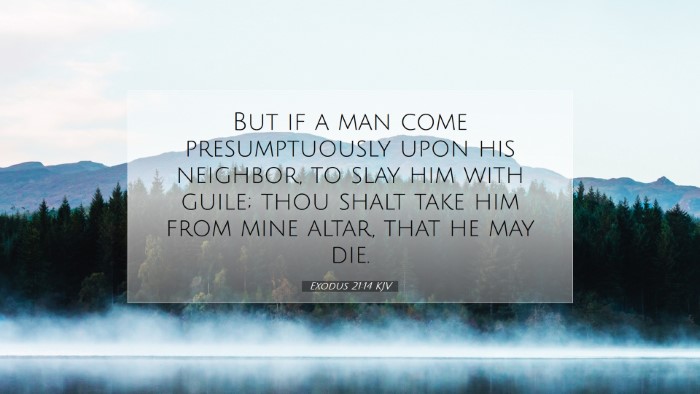Exodus 21:14 - Summary of Commentaries
Exodus 21:14 states: "But if a man comes presumptuously upon his neighbor, to slay him with guile, you shall take him from My altar, that he may die." This verse presents the divine directive concerning premeditated murder and the consequences that follow. It emphasizes the severity with which God views the act of intentional harm and the sanctity of justice.
Insights from Matthew Henry
Matthew Henry, in his commentary, emphasizes that this law is aimed at ensuring justice and discouraging premeditated evil. He notes:
- This verse signifies that God’s laws are not merely for the protection of the innocent but also for the punishment of the guilty.
- Henry highlights the phrase "comes presumptuously," suggesting that intent plays a crucial role in how justice should be administered.
- He argues that society must hold individuals accountable for their deliberate actions, especially those who cunningly plot to harm others.
Henry further states that even in a context of sanctuary and protection, there are limits. If a murderer seeks refuge at God’s altar, it is an affront to the holiness of God, illustrating the juxtaposition of divine mercy and justice.
Insights from Albert Barnes
Albert Barnes provides a detailed exegesis of this verse. He interprets it as follows:
- Barnes points out that the altar was a place of refuge, but this verse establishes that it cannot serve as a shield for those who commit willful murder.
- He emphasizes the importance of the phrase "with guile," indicating that calculated malice is especially heinous in God’s sight.
- The commentary interprets this directive as reflective of divine justice, where God mandates that those who act with premeditation should be removed from any divine sanctuaries.
Barnes also notes that this demonstrates a profound aspect of God's character; while He is merciful, He demands righteousness and the execution of justice for deliberate transgressions against others.
Insights from Adam Clarke
Adam Clarke’s commentary offers a theological reflection on this verse:
- Clarke discusses the gravity of crimes committed with premeditated intent. He asserts that God's law holds a high view toward human life and the necessity of protecting it.
- He also stresses that the justice prescribed here indicates that even a perceived place of safety, like the altar, must acknowledge the boundaries of justice.
- Further, Clarke delineates the moral implications of the laws given to Israel, pointing out that they reflect God's displeasure with violent acts borne from malice.
Clarke concludes that this verse serves as a warning against both the sin of murder and the trivialization of repentance if one seeks to escape deserved punishment through manipulation of the law.
Theological Implications
The interplay of justice and mercy is a central theme in Exodus 21:14. The verse reflects God's desire for a just society where the weight of sin is acknowledged and addressed:
- Nature of Sin: This scripture underscores the seriousness with which God regards murder, especially when it arises from a heart of malice.
- Sacredness of Life: The command speaks to the protection of life and the grievous nature of any act intending to take it unjustly.
- Moral Accountability: The assurance that no one is above the law, not even those who seek refuge at the most sacred places, promotes the underlying principle of accountability that is crucial in any society.
Application for Believers
For modern believers, this verse serves several relevant applications:
- Understanding Justice: Recognizing the necessity of divine justice alongside grace informs our understanding of God's character.
- Awareness of Intent: It encourages individuals to examine their motivations and intentions, understanding that God sees beyond actions into the heart.
- Ministry of Reconciliation: It challenges believers to engage in peacemaking and reconciliation, emphasizing that intentional harm is an affront to God's will.
Conclusion
Exodus 21:14, through the lenses of Matthew Henry, Albert Barnes, and Adam Clarke, reveals profound truths about God's justice, the seriousness of premeditated sin, and the imperative for accountability in society. It calls both ancient Israel and contemporary believers to reflect on the weight of sin and the importance of upholding justice within the framework of divine law.


